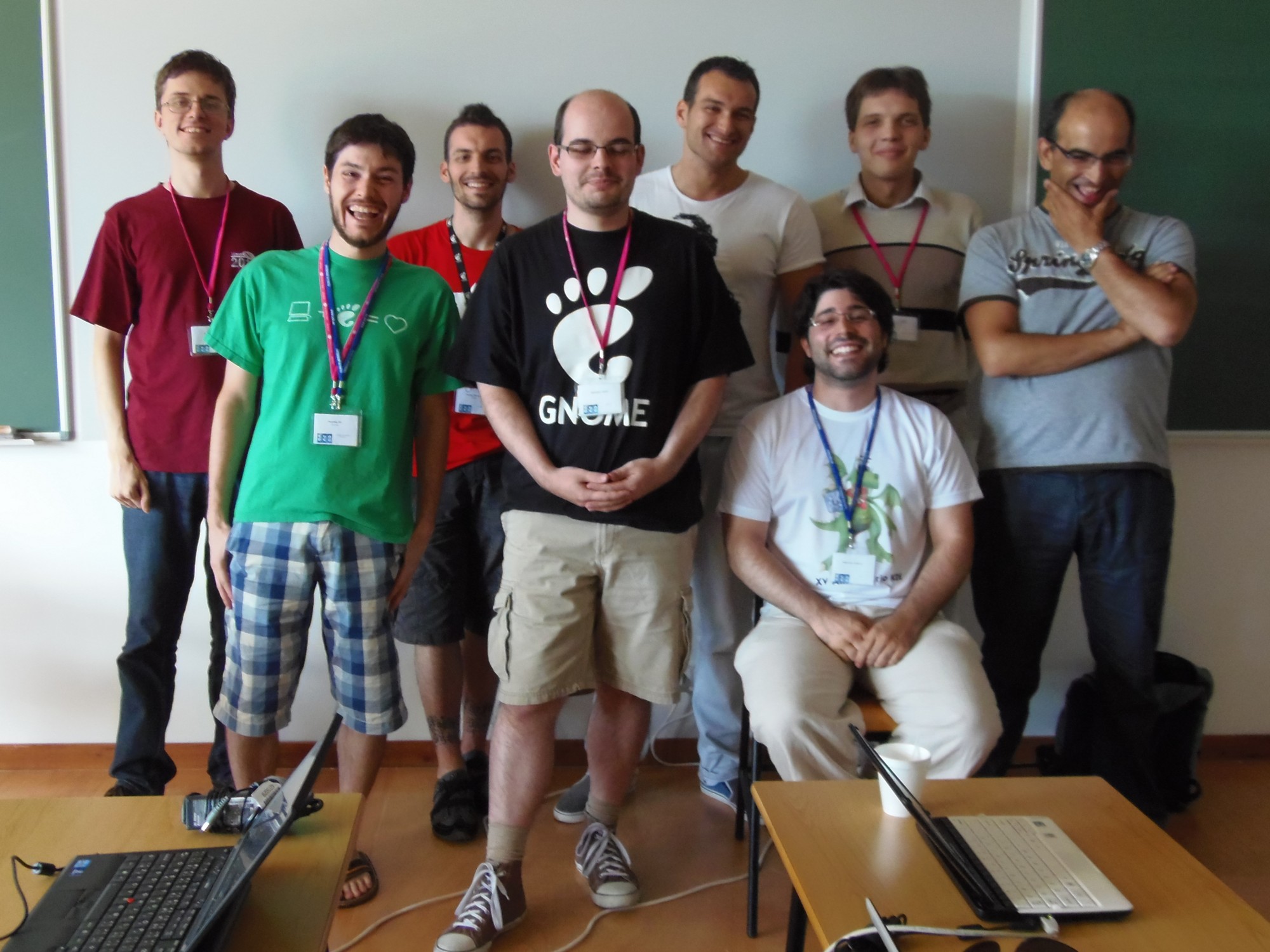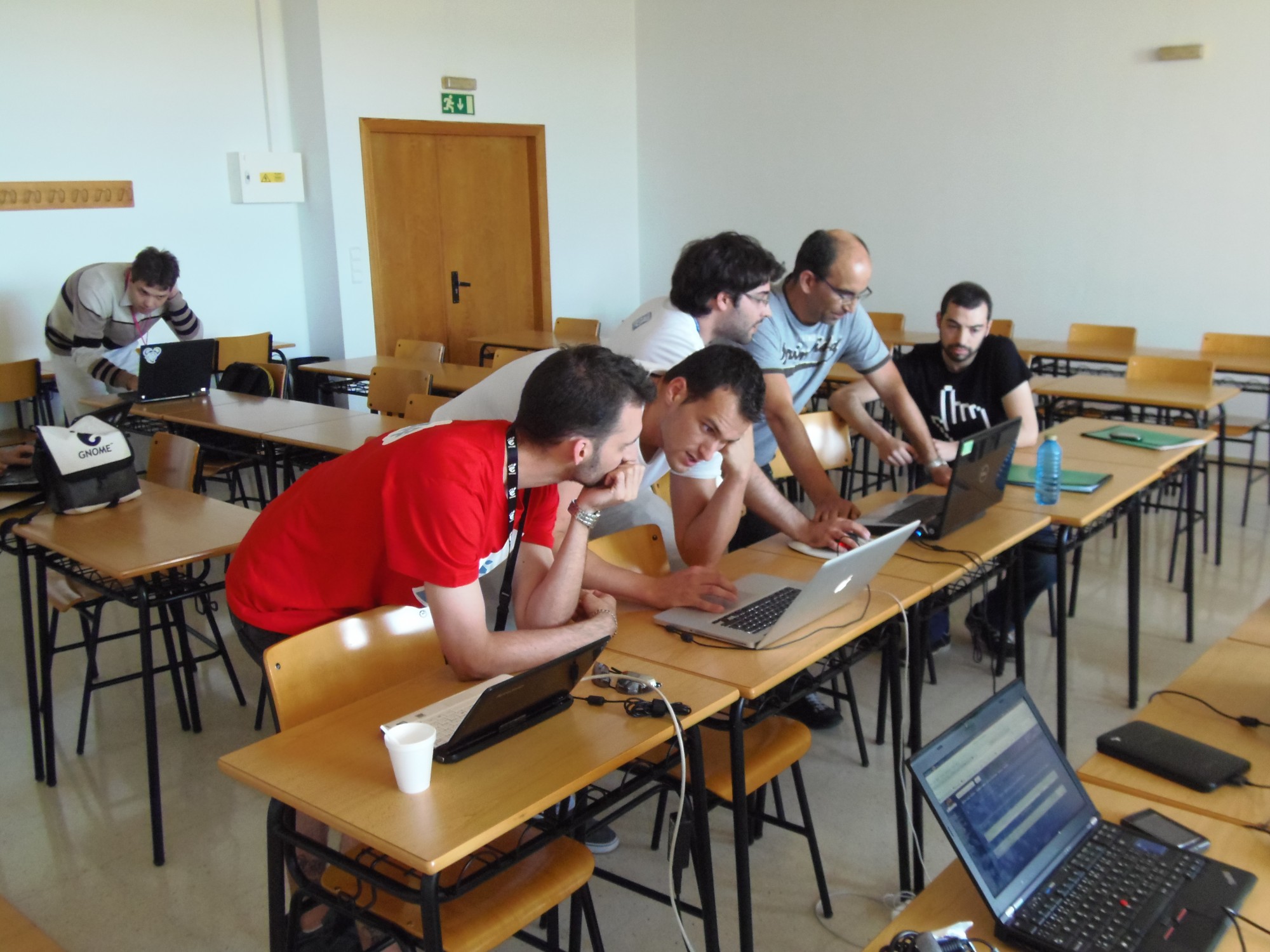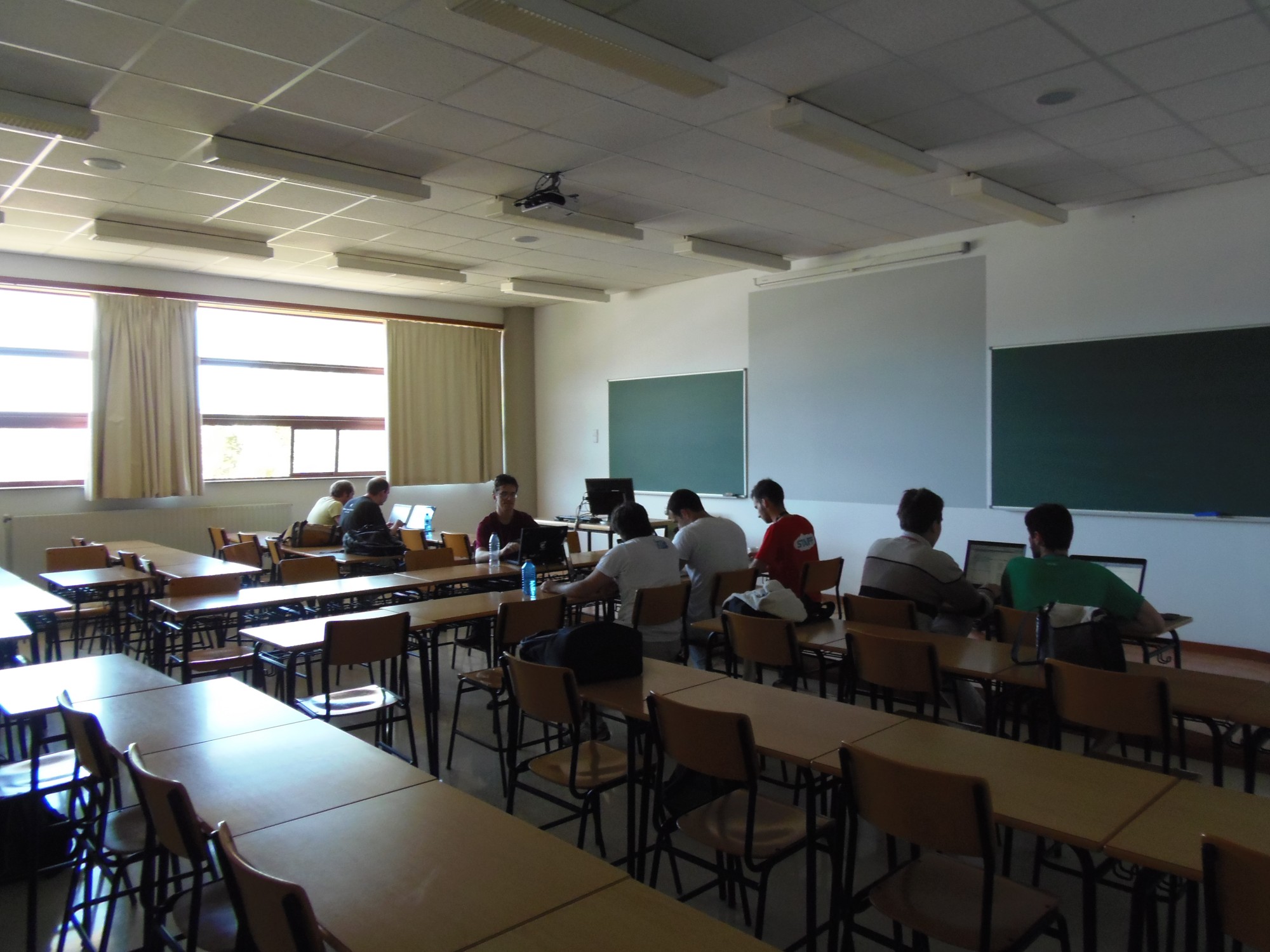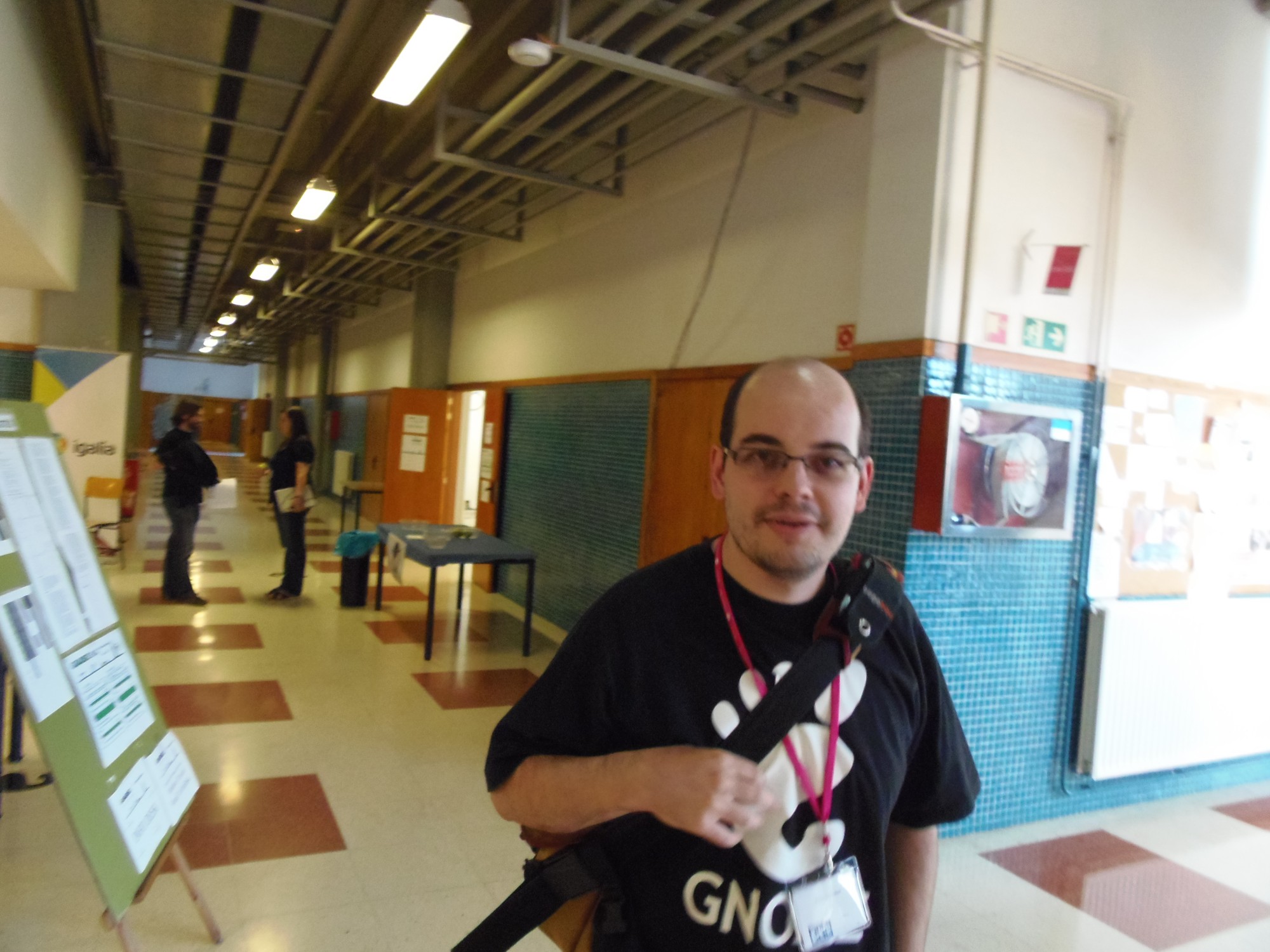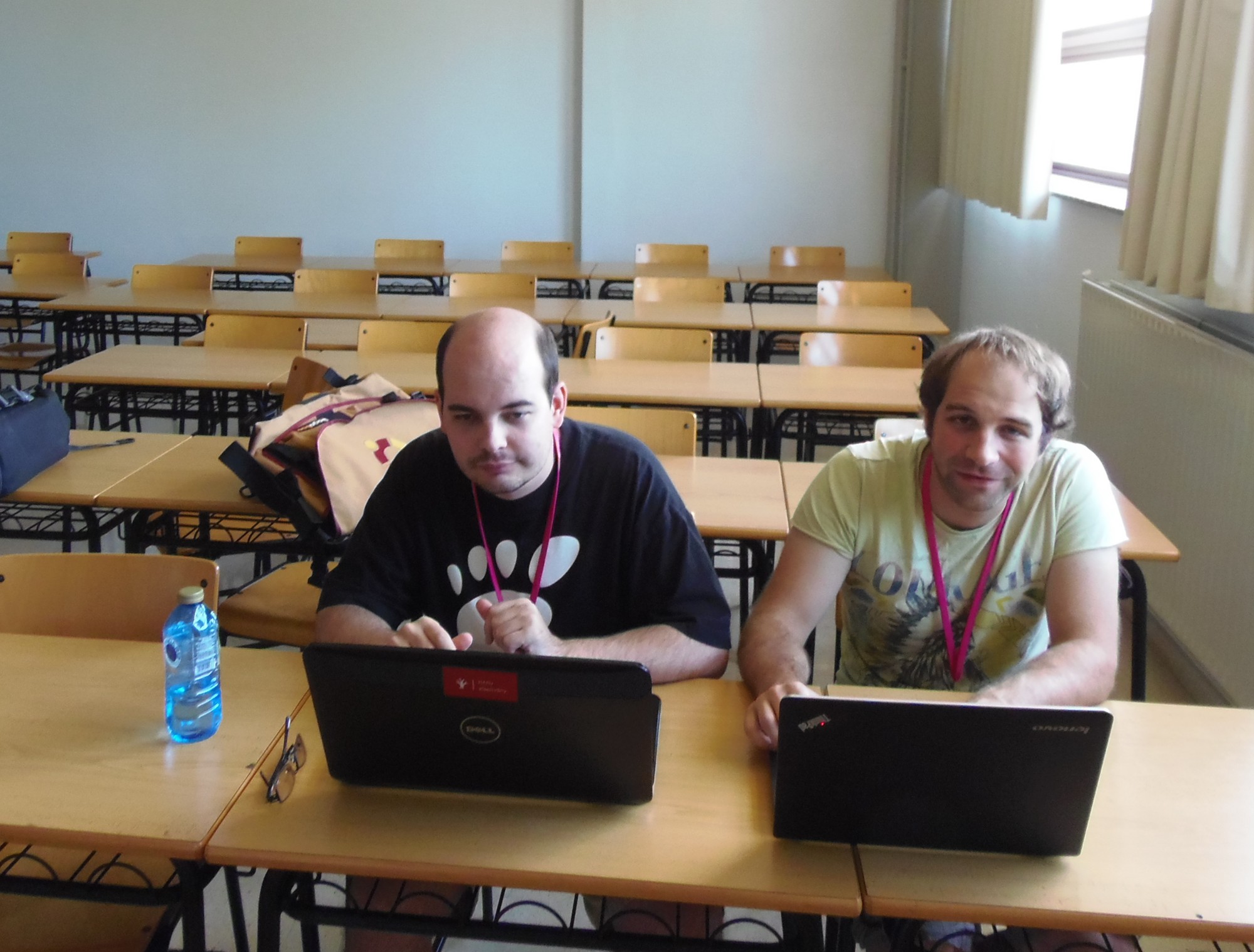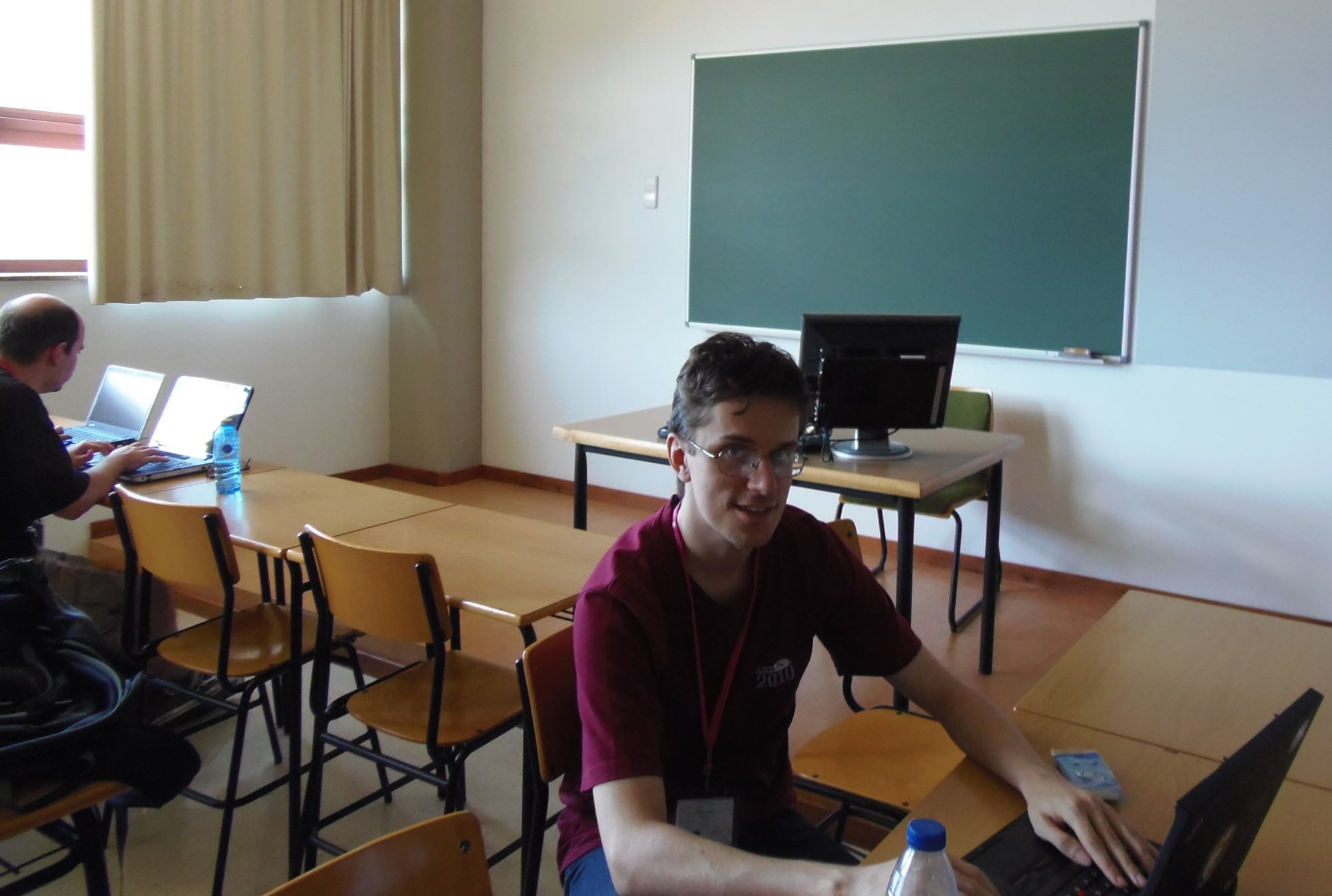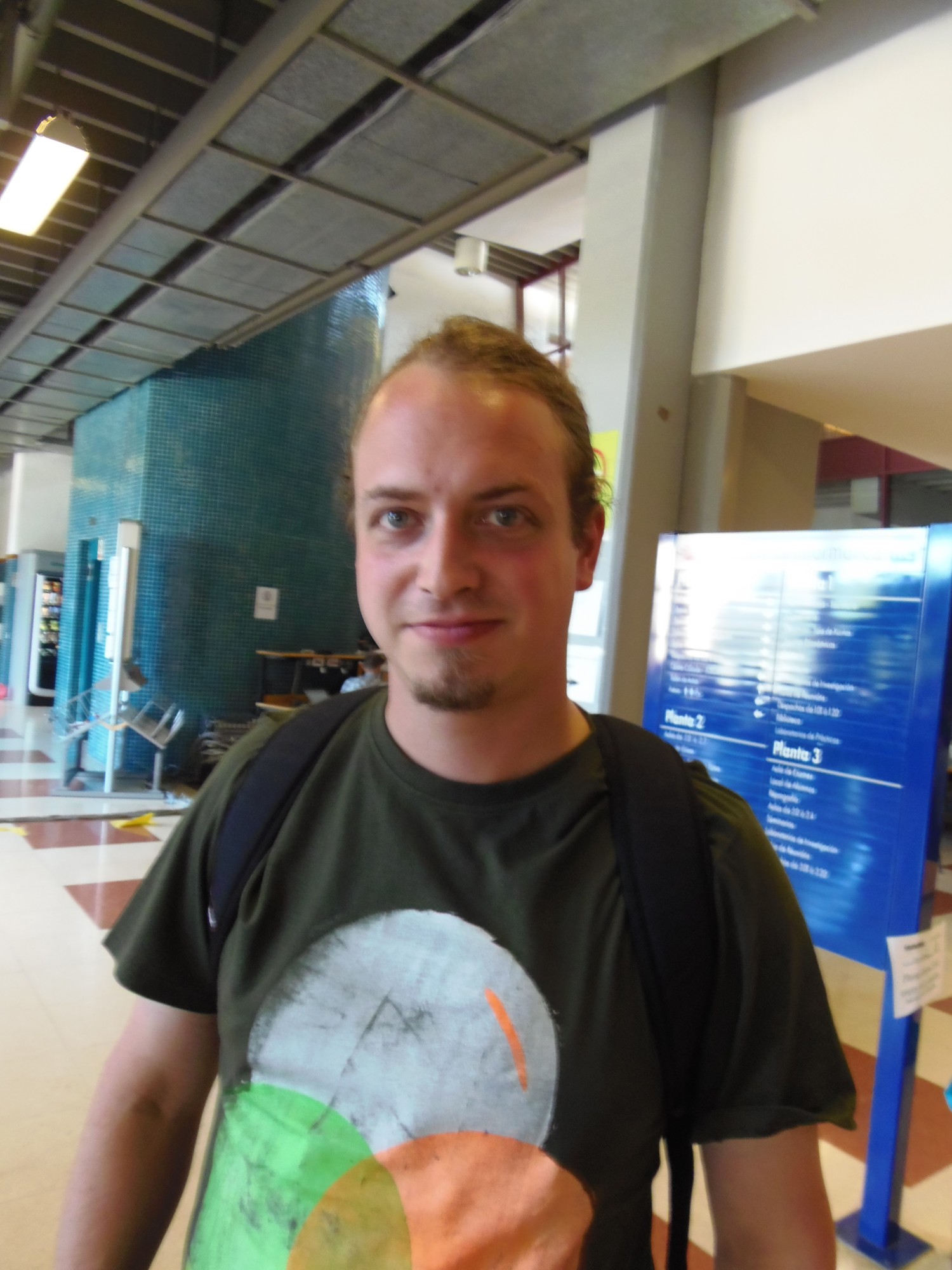Today was the last conference day of GUADEC 2013 and I have to say that being involved in the conference organization and volunteering has been an amazing experience. I want to thank my fellow organizers, our volunteers and all the people who offered their help to make GUADEC in Brno happen. You were great!
This year’s program included a number of talks related to community outreach and documentation. On Thursday, Kat and Sindhu talked about how to get involved in community efforts such as the GNOME Docs. At the Newcomers Workshop organized by Marina and others, I had a chance to meet our newest member of the Czech localization team. Our team, just like pretty much any other, needs fresh blood, so I was more that happy to see so many newcomers attending GUADEC, including those who are also interested in other aspects of the project than just coding.
At the GNOME Foundation AGM on Friday, Sindhu gave an update on GNOME documentation and I talked about what GNOME Localization has been up to since the last GUADEC in A Coruna.
Kat gave a talk on documentation on the third day. Later that day, we had a lightning talk session and I talked a bit about Getting Started video tutorials that we introduced in GNOME 3.8. Today, Marta gave a presentation on the developer tutorial for GTK+, followed by Jeff Fortin who gave a talk on PiTiVi and showed us some really funny videos.
It’s probably needless to say that conferences like GUADEC are special in that you can finally meet in person other members of the teams that you are involved in. Seeing familiar and new faces is always nice.
Next week
Next week we plan to have a docs hackfest, which will be focusing on the GNOME Desktop System Administration Guide. GNOME translators also plan to discuss some hot topics in GNOME i18n, such as broken translations for the gnome.org website, a l10n workflow for translating Git submodules, auto-committing translation files to GNOME Git repos etc. One of the outstanding issues we had appears to be already fixed – big kudos to Matthias for that.
If you are interested in GNOME docs or l10n, be sure to join us for the shared docs & l10n session we will have on the morning of the 6th. So, see you next week!
